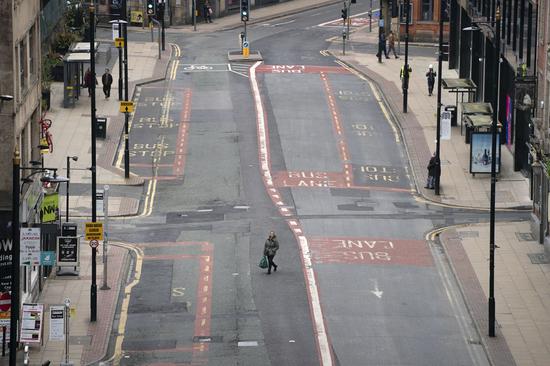
Photo taken on Nov. 5, 2020 shows empty streets in Manchester, Britain. (Photo by Jon Super/Xinhua)
Special:The impact of COVID-19, social isolation and a rise in hateful extremism online are creating a "perfect storm", making more young people vulnerable to radicalisation and other forms of grooming, Britain's Counter Terrorism Police (CTP) said Wednesday.
Between Jan. 1, 2019 and June 30, 2020, 17 children have been arrested in relation to terrorism offences and some were as young as 14 years old, said the police.
"In the same time period, more than 1,500 children under the age of 15 were referred to the Prevent programme to help them choose a different path, away from hatred and violence," it added.
"We are seeing more young people being drawn towards terrorist activity," said the head of Counter Terrorism Policing, Assistant Commissioner Neil Basu.
The ACT Early, a new safeguarding website, provides advice, guidance and support for anyone who is concerned that someone they know may be at risk from being radicalised, he noted.
"COVID-19 has meant that vulnerable people are spending a lot more time isolated and online, and with fewer of the protective factors that schooling, employment, friends and family can provide," he said.
To bring life back to normal, countries, such as Britain, China, Germany, Russia and the United States, are racing against time to develop coronavirus vaccines.

